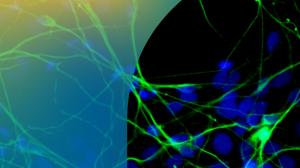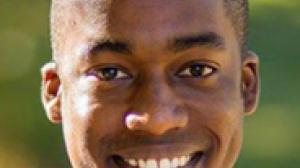Dalton Hughes Aspires to Change the Way We Treat Psychiatric Disorders
At the end of his second year of medical school, Dalton Hughes, a fifth-year student in the Medical Scientist Training Program, a dual MD/PhD program, ran into a friend who was struggling with psychiatric disorders.
”I remember seeing him and just by looking in his eyes, I realized that there was something different about him. Something was missing,” says Hughes. “It was unsettling to see a friend struggling with mental illness.”
That moment took Hughes by storm and defined what he wants to be — a psychiatrist. Today, he is working toward a PhD in neurobiology, and he studies how the brain represents anxiety across distributed neural networks. “The field of psychiatry is both a science and an art,” he says. “As a student, being able to watch psychiatrists do what they do, I'm in awe about the magic of sitting down with a patient and formulating treatment plans.”
Hughes is interested in understanding how the brain responds to anxiety and what happens in the brains of patients with psychiatric disorders. “To give a peace of mind to my future patients and to their family members is something that you can't put a price on,” he says.
Hughes was awarded the Wakeman Fellowship, which has allowed him to join the lab of Kafui Dzirasa, MD, PhD. He first met Dzirasa when he was a Meyerhoff Scholar, a program which aims to increase diversity among future leaders in science and engineering, at the University of Maryland, Baltimore County (UMBC). Dzirasa, who is an alumnus of UMBC and the Meyerhoff Scholars Program, encouraged Hughes to come to Duke for graduate school.
“I want to find new ways of diagnosis and treatment of psychiatric disorders,” says Hughes. “I don't want to live in a world where my loved ones are taken away from me and we don’t know what happened to their personalities and their abilities to interact with us. We have to answer those questions.”
“I want to find new ways of diagnosis and treatment of psychiatric disorders. I don't want to live in a world where my loved ones are taken away from me and we don’t know what happened to their personalities and their abilities to interact with us. We have to answer those questions.”
Dalton Hughes




